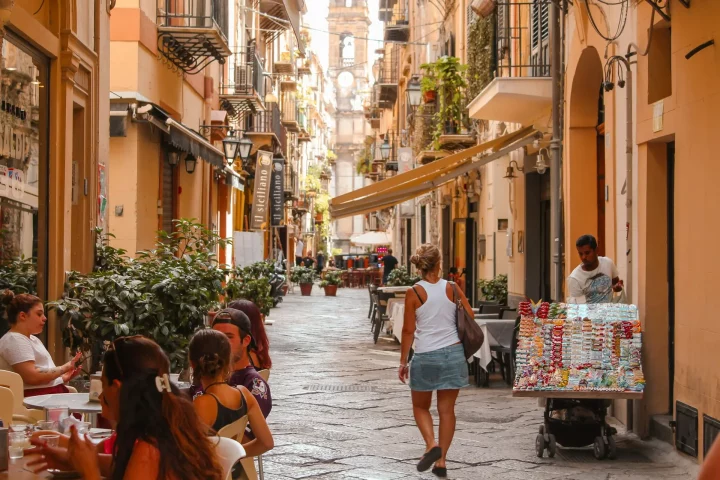Italy is a country with rich history, culture, and picturesque landscapes. It offers two distinct paths to becoming part of its vibrant community: Italian citizenship and naturalization. In this brief overview, we’ll explore the differences between these two processes, shedding light on the rights, requirements, and opportunities they entail. Whether you’re an Italian descendant, a foreign resident, or simply curious, read on to discover the nuances of becoming an Italian citizen.
Italian Citizenship
The primary difference between an Italian citizen by birth and a naturalized Italian citizen lies in how they acquire their citizenship. An Italian citizen by birth automatically gains citizenship through “jus sanguinis” (right of blood), meaning they are born to one or both Italian parents. This grants them full Italian rights from birth, including voting, access to public services, and consular protection abroad.
Italian Naturalization
Naturalization is a voluntary process for non-Italians who wish to become dual citizens. It involves applying for Italian citizenship. Eligibility criteria include legal residence in Italy (which varies depending on whether you are an EU citizen or not), having an Italian ancestor or being married to an Italian citizen. Naturalized citizens can maintain their original citizenship alongside Italian citizenship.
Take advantage of specialized assistance to secure your passport for a borderless future.
Italian dual citizenship historical context.
The historical context of Italian dual citizenship is deeply rooted in the principle of Jus Sanguinis (right of blood). This principle allows individuals to claim Italian citizenship through their Italian ancestors, regardless of their place of birth. In 1992, Italy formally recognized dual citizenship, allowing those of Italian descent to lawfully obtain and retain Italian citizenship alongside their original nationality. This legal reform has enabled many individuals worldwide to reconnect with their Italian heritage and enjoy the benefits of dual citizenship.
But what is dual citizenship?
Dual citizenship, also known as dual nationality, refers to the status of an individual who is legally recognized as a citizen of two countries simultaneously. This means that a person can hold two passports, enjoy the rights and privileges of both countries, and be subject to the laws and obligations of both nations. Dual citizenship can occur automatically in some cases, such as when a child is born to parents from different countries, or it can be obtained through legal processes like naturalization, marriage, descent, or investment. While dual citizenship offers benefits like increased travel freedom, access to social services, and business opportunities, it can also come with challenges such as double taxation and legal complexities
What are the benefits of having Italian dual citizenship?
Italian dual citizenship offers numerous benefits, making it an attractive option for many. As an Italian dual citizen, you gain the right to live, work, and study in any of the 27 EU member states without the need for visas. This opens up a wealth of opportunities for employment, education, and travel across Europe. Additionally, you can access Italy’s high-quality, affordable healthcare system and benefit from lower tuition fees at Italian universities. Dual citizenship also allows you to vote in Italian elections and enjoy consular protection abroad. Moreover, it provides the flexibility to maintain your original citizenship while embracing the rich cultural heritage and vibrant community of Italy.
Why should you seek expert assistance?
The path to Italian dual citizenship can be complex and demanding. When seeking naturalization, specialized assistance, such as io.citizenship, ensures a smooth and secure path to Italian dual citizenship. If you want to ensure a quicker and more secure path, count on us! Contact us today!
Take advantage of specialized assistance to secure your passport for a borderless future.






